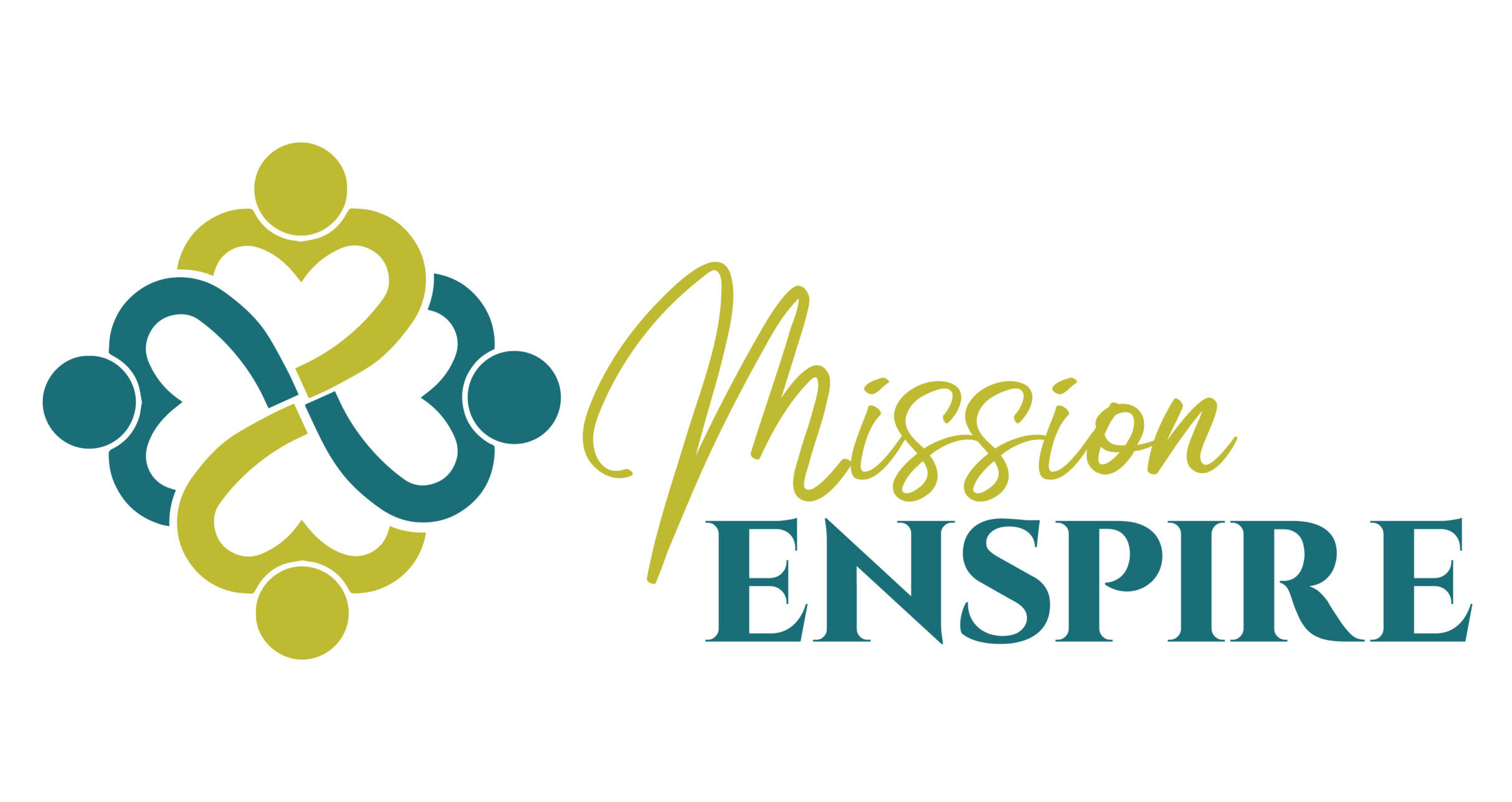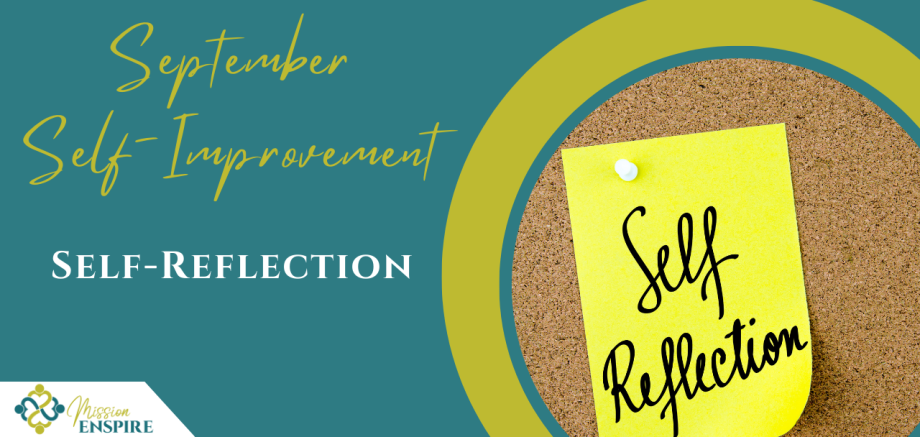Welcome to this week’s blog installment! September is in full swing, with the “official” start of fall just a couple of days away and many of us across the country experiencing some invigorating cooler weather. Something about the change of seasons and approaching the last few months of the year always puts me in an introspective frame of mind, and I’ve been thinking a lot over the past week about self-reflection and how much of a role it plays in my own (ongoing) self-improvement journey.
But what is self-reflection, exactly? Self-reflection is the act of evaluating our own thoughts, feelings, behaviors, and actions to better understand ourselves. Self-reflection is an excellent tool to evaluate any circumstance we find ourselves in to consider our role in the situation and what’s in our control to do differently in the future. Looking within helps determine what we may be doing in any given situation that is causing us friction in our lives. Self-reflection can help with:
- Better understanding your current situation
- Helping you take ownership of the situation
- Making an effective plan to improve or take action on something
- Setting healthier boundaries with others
- Increasing your self-esteem
It may not seem natural to evaluate yourself and look for ways you can change, but it is a powerful way to improve your health, relationships, and overall quality of life. Understanding that you have the power to analyze your role in nearly every scenario and situation you’re in can help you grow, mature, and live a healthier life.
Looking Back is Just as Important as Looking Forward
We’ve all heard the encouraging mantras designed to keep us moving forward in life: “keep your eyes on the prize,” “inhale the future, exhale the past,” “the windshield is larger than the rearview mirror,” and so on. These powerful statements are designed to motivate you to leave the past behind you and focus on the future.
Looking forward is important. In some ways it’s true, you can’t change or control the past, but perhaps you can change and control the future. When we feel stuck, scared, or overwhelmed trying to manage life, it’s important to keep moving forward. Step by step, we can overcome any setbacks and achieve our goals. Some great ways to keep moving forward include:
- Take it one day at a time. Don’t overwhelm yourself with too much at once. Making changes in any area of life isn’t easy. Take one day at a time and be proud of your progress.
- Stay positive. Your mindset is powerful. If you adopt a positive mindset about change you can manage the bumps in the road as a necessary part of evolution. (Having said that, know that it’s also OK to feel frustrated, “stuck,” or sad sometimes too. “Positivity” shouldn’t be a source of stress or something you feel pressure to maintain if it’s not your authentic mindset in any particular moment.)
- Slow and steady is the perfect pace. Taking things one day at a time can help you keep a steady pace with change and keep your eyes focused ahead towards progress.
Looking forward is important and powerful when it comes to making changes or reaching your goals, but there are times when looking back before going forward is actually just as, or even more, important.
We often discourage looking back thinking it’s useless when it comes to progress. Dwelling on the past or ruminating over things that have already happened is often seen as a waste of time, but to a degree, it’s important and helpful. Looking back will help you better understand yourself: We often live our lives moving forward but understand them looking back. Self-reflection provides an opportunity for analysis on our thoughts, behaviors, and attitudes. This can help us better understand why we act, react, or do the things we do. Looking back can help us determine if we want to do things differently moving forward.
Looking back can also figure out if there are patterns or habits that aren’t serving you anymore–and give you a starting point to change those patterns. We all have some regrettable memories in our past, times that maybe we missed the mark or suffered an unexpected outcome. In the moment, we may not have realized how our behaviors or thoughts would impact the situation but looking back it’s evident. Self-reflection can help us recognize where we contributed to an unwanted outcome and make a better plan moving forward.
While it’s very important to keep moving forward when it comes to change, it’s also important to strategically look back to evaluate and analyze what needs to change for a successful future. Self-reflection is an excellent tool that can keep you from taking one step forward and two steps back. But how does one self-reflect? What does that process look like?
Asking Open-Ended Introspective questions? The Key to Healthy Self-Reflection
Knowing that self-reflection is a good idea is the first step, the second is discovering how to self-reflect.
- Self-Reflection Requires You to Pause. In order to self-reflect, you’ve got to get quiet. Healthy and effective introspection requires hitting the pause button and stopping the chaos long enough to get a clear head that can process important information. Getting quiet and concentrating on yourself is important so you can uncover the ways you may be getting in your own way and falling short of your goals, hopes, and dreams. One of the best ways to self-reflect is asking yourself open-ended questions. Asking these types of questions can help you fill in the blanks or explore things in a deeper way. Here are some examples of questions that are great for introspection: What motivated my actions? What factors contribute to this recurring pattern? What prompted their reaction towards me? What shapes my current thought processes? By inquiring into motivations behind your actions this can help you stop and think about the things that trigger you into behaviors or habits you want to change or wonder why certain things keep happening. It’s important to look for clues that alert you to what’s going on deep down.
- Keep a Journal to Help with the Process. Journaling is a great way to keep track of your self-reflection and understand the reasons behind the situations and outcomes you experience. You can simply ask yourself exploratory questions and record your thoughts in your journal. Over time you can see patterns develop and use them to make changes. Journaling has helped me get my thoughts and feelings down on paper, and I’ve found that sometimes the act of writing something out lets thoughts flow that might otherwise not have surfaced if I was simply mulling things over in my head. (I have lots more thoughts about journaling–look out for that as a blog-series topic in a future month soon!)
If you’re ready to do some healthy self-reflection, start by asking yourself some open-ended introspective questions? These questions have the power to unlock a world of information that can help you change the way you think and act, making it easier to achieve your goals.
I hope this post has given you some insight into why self-reflection is an important part of self-improvement and how to begin self-reflecting. If you’re still feeling a bit stuck, coaching can be a great way to kick-start self-reflection with some support and a framework (coaches are trained and skilled at asking some of those “powerful questions” that prompt self-reflection) but the beauty of self-reflection is that you can do it anytime, anywhere, and with anyone or in solitude with yourself–whatever approach feels right for you. Try taking a few moments this week to self-reflect, and feel free to let me know what you learn and how it feels!

